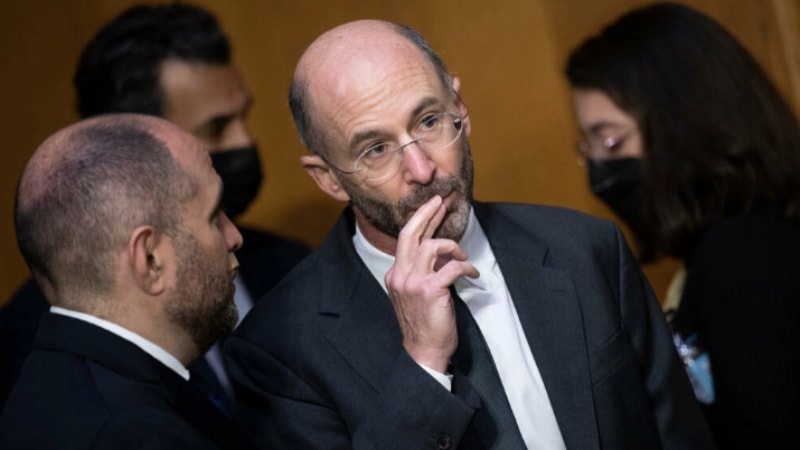WASHINGTON: The US point man on Iran warned on Wednesday of uncertain prospects for reviving a nuclear deal and said Tehran would face a new pressure campaign if it clung to its demands.
Rob Malley, who has led more than a year of indirect talks with Iran in Vienna, nonetheless told Congress that President Joe Biden’s administration still supported the 2015 nuclear accord and was ready to lift sanctions if it secures an agreement with Tehran.
“We do not have a deal with Iran and prospects for reaching one are, at best, tenuous,” Malley was to tell the Senate Foreign Relations Committee, according to prepared testimony.
“If Iran maintains demands that go beyond the scope of the JCPOA, we will continue to reject them, and there will be no deal,” he said, using the official name for the Joint Comprehensive Plan of Action.
IAEA at ‘very difficult juncture’ with Tehran on unanswered questions
He was likely referring to the clerical state’s demands to remove a terrorism blacklisting of the elite Revolutionary Guards, a step rejected by Biden and bitterly opposed by many in Congress. If talks with the Biden administration fail, “Iran’s government will need to explain to its people why it has chosen isolation,” Malley said.
“We are fully prepared to live with and confront that reality if that is Iran’s choice, ready to continue to enforce and further tighten our sanctions, albeit this time around with Europe firmly by our side,” Malley said.
The United States would also be ready to “respond strongly to any Iranian escalation, working in concert with Israel and our regional partners,” he said.
Malley, sure to face hostile questioning from lawmakers opposed to diplomacy with Iran, said he was under no illusions about the clerical state and pointed to recent demonstrations over austerity measures.
“The protests we are seeing now in Iran are a measure of the government’s corruption and mismanagement, and the brutal response to those protests are a reminder of the government’s moral bankruptcy,” Malley said.
‘Very difficult juncture’
Talks with Iran aimed at ending a long standoff on explaining the origin of uranium particles found at apparently old but undeclared sites are at “a very difficult juncture”, UN nuclear watchdog chief Rafael Grossi told a panel discussion at the World Economic Forum in Davos, Switzerland, on Wednesday.
Grossi and Iran agreed in March on a three-month plan to get to the bottom of the issue, which has been a source of tension between Iran and Western powers even during wider negotiations aimed at bringing Tehran and Washington back into full compliance with the 2015 Iran nuclear deal.
Those wider talks are now stalled but Grossi has said it is hard to imagine any agreement to revive the 2015 deal being implemented while the International Atomic Energy Agency still had not received satisfactory answers on this issue.
“I suppose I should abstain from having a final conclusion at this point since we haven’t finished the process yet but let me say that we are at a very difficult juncture at the moment,” Grossi said.
Grossi is due to report to the IAEA’s 35-nation Board of Governors on how talks on the open issues have progressed by the time the Board starts a quarterly meeting on June 6. “I hope that the time ... between now and the issuance of my report will (be) put to good use to come (up) at least with a start of a credible answer to these things.”
Published in Dawn, May 26th, 2022














































